The 8 Best Abstract Management Software for 2025
What is an Abstract Management Software?
An abstract management software is an essential tool for academic, scientific and research-focused events. Event organizers use it to streamline the submission, peer review, and the publishing process. By centralizing these tasks, organizers can save time, reduce manual errors, and enhance the overall quality and research integrity of their conferences.
Such a software eliminates the frustrations of managing submissions on spreadsheets, offering tools to track everything from academic publishing workflows to submission and review tools, ensuring a seamless experience for both organizers and researchers.
In this article, we present the eight best abstract management software solutions, starting with Fourwaves, tailored for scientific, research-focused and academic events.
On a tight budget? If you’re looking for free abstract submission tools, free tiers, or DIY workflows, see our guide: Free Abstract Submission Software.
1. Fourwaves
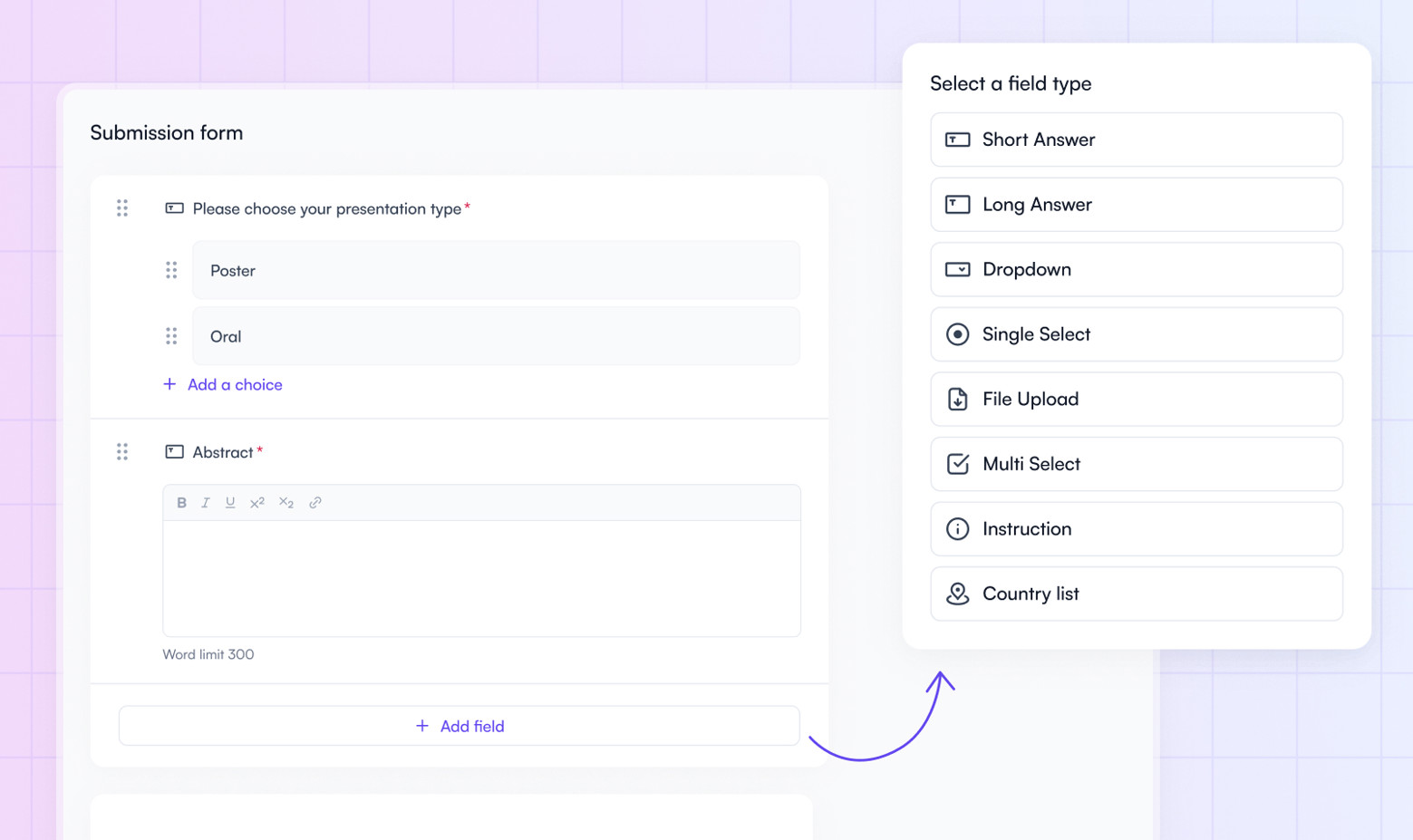
The submission forms is fully customizable on Fourwaves with an intuitive drag and drop interface.
Fourwaves has a built-in abstract management and peer-review software designed for academic researchers and conference organizers. Our goal? To simplify the academic publishing process while ensuring academic rigor and ease of use.
Standout Features:
- Customizable Submission Forms: Design submission forms with options to categorize by topic, track, or presentation type. Add custom fields to collect additional details required for your event.
- Real-Time Editing: Authors can edit their submissions until the deadline, ensuring the most up-to-date research is presented.
- Integrated Peer Review Tools: Manage double-blind review or other review types effortlessly. Session chairs can oversee reviews, filter submissions by reviewer feedback, and classify them as accepted or rejected.
- Event Website Integration: Seamlessly publish abstracts, posters, and supplementary materials directly to your event website, complete with search functions and filters.
- Interactivity: Enable participants to send private messages or post questions to presenters, fostering scientific collaboration and engagement.
Pro Tip: Want to learn how to manage the entire abstract evaluation process with Fourwaves? Read our guide on Abstract Management Tips.
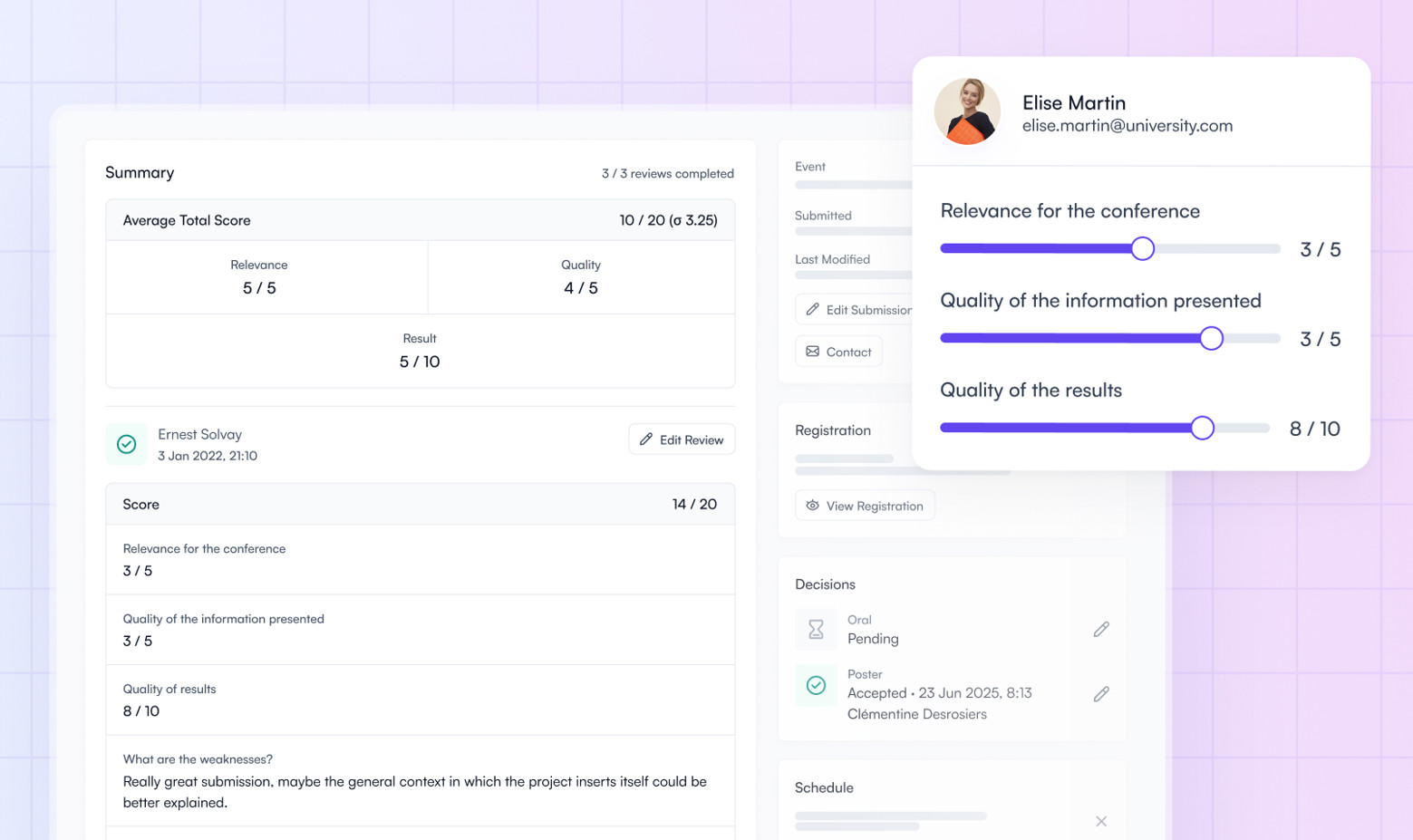
Manage your review process and find the top scored submissions on Fourwaves.
The platform also removes any friction from the peer review process by allowing organizers to choose from a single, double, or blind peer review process, then distribute submissions to reviewers either manually or randomly by choosing the desired number of reviews per submission. Session chairs have a birds eye view of all submissions under review and their status and can communicate with reviewers through the submission management platform. The submissions can be filtered by topic or final score and can be classified easily as accepted or rejected for your specific decision types. Once the reviews are complete, organizers can communicate with authors and organize the presentations in sessions to create the conference’s schedule.
Finally, the content submitted (abstracts, posters, slides, videos) can be seamlessly integrated into your event website with a search function and custom filters. Participants who access the content before or after the event can also interact with presenters either by sending a private message or by posting a question on the discussion board.
Interactive Fourwaves Demo
Try Fourwaves below. To book a live 15-min demo, click here.
2. Cvent
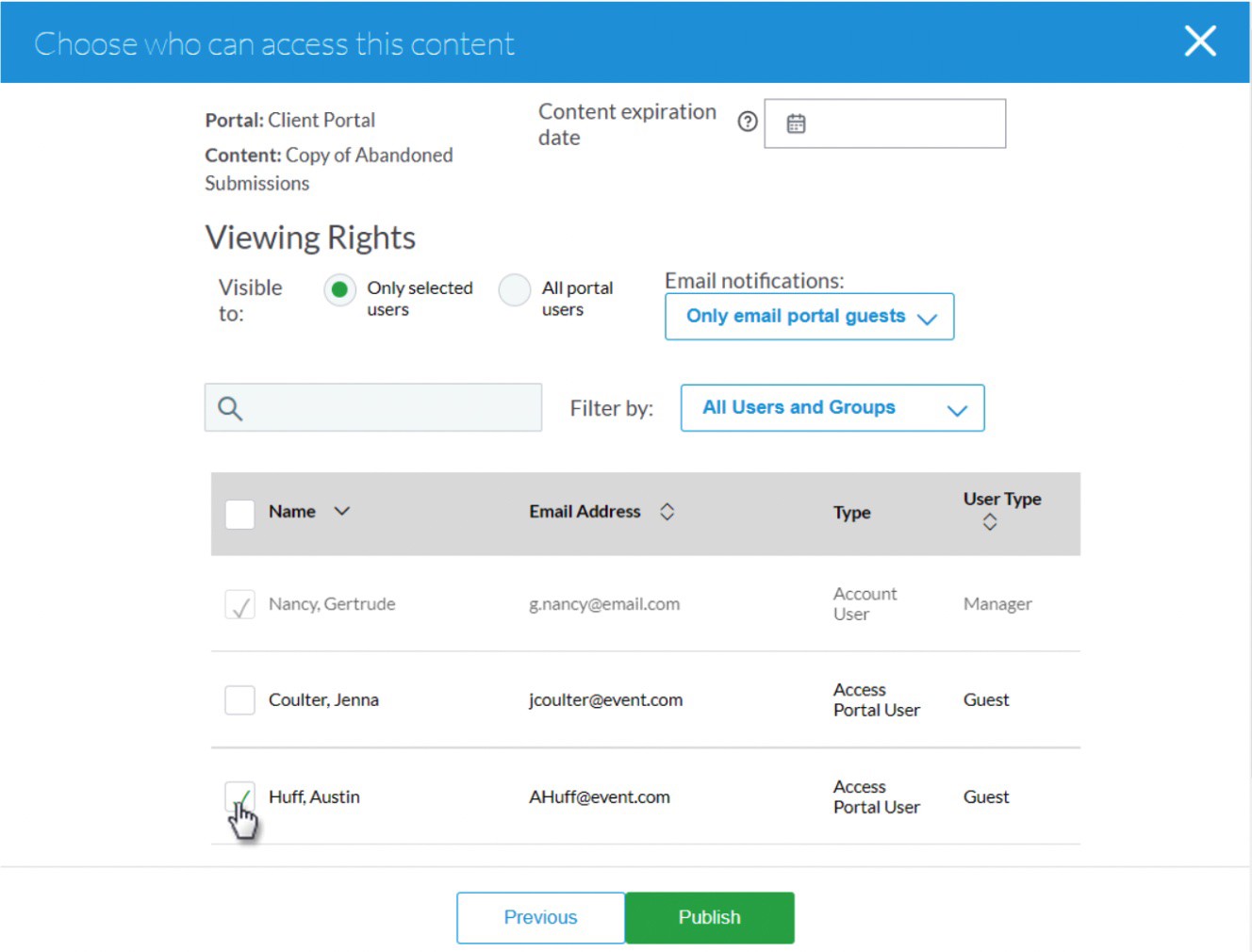
Cvent allows you to customize the submission options.
Best for: Comprehensive Event Management
Cvent provides a complete event management solution, from the peer review process to publishing accepted abstracts. Its customizable forms and email automation options make it versatile, though some reviewers find it less intuitive and less focused on academic events.
Standout Features:
- Customizable submission forms tailored to any event type.
- Robust email automation for invitations, confirmations, and reminders.
- Reviewer tools to assign, evaluate, and approve submissions.
- Agenda creation and content publishing for event websites.
Pro Tip: While Cvent is powerful, it’s not tailored for scientific collaboration or academic events. Discover why Fourwaves is a great alternative to Cvent for research conferences.
3. OpenWater
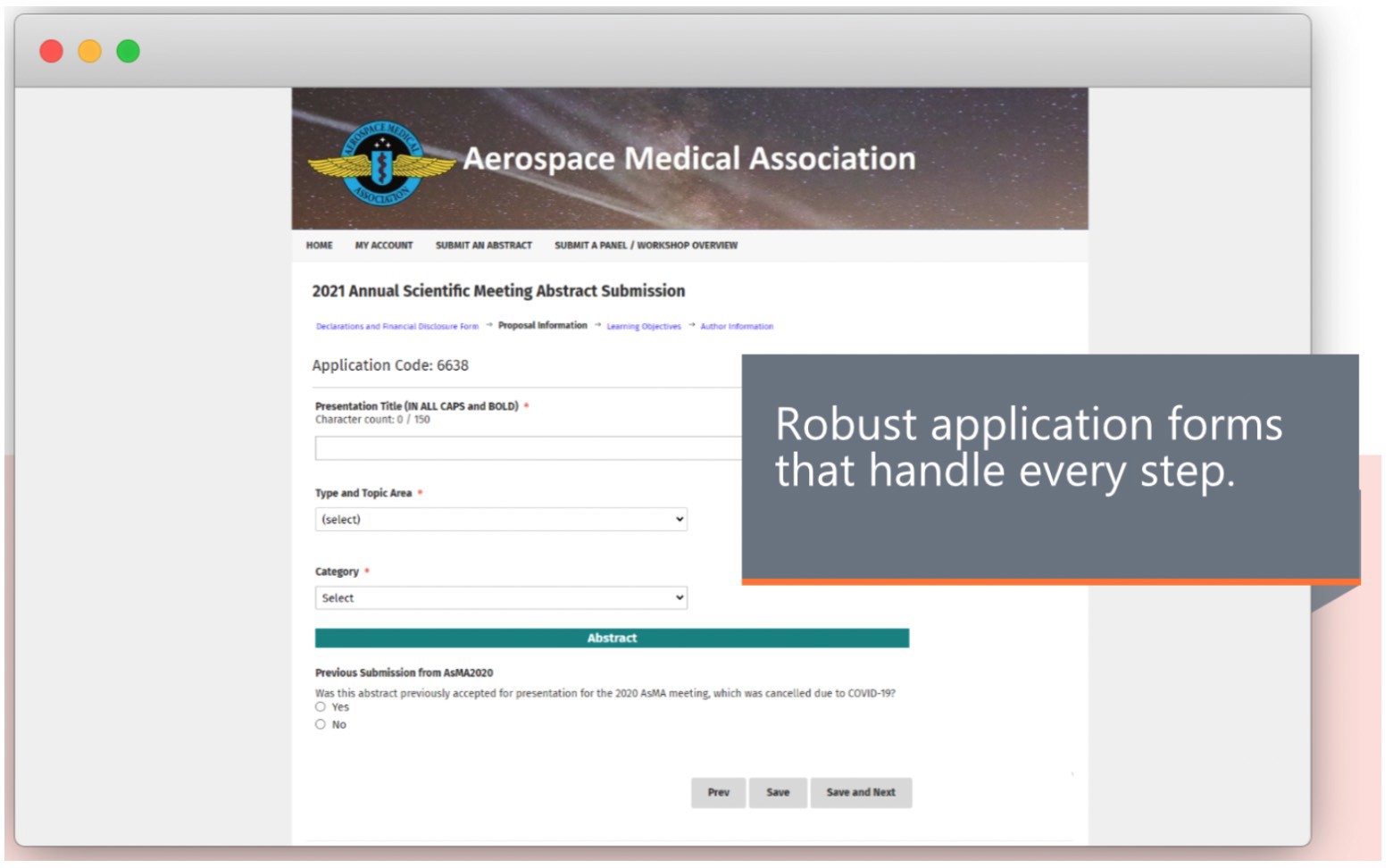
A call for proposal page on OpenWater.
Best for: Multi-Year Event Planning
OpenWater is a versatile platform that allows organizers to duplicate submission setups for recurring conferences, streamlining multi-year event planning.
Standout Features:
- Duplicate abstract collection forms for easy annual setup.
- Centralized dashboards for session and submission management.
- Peer review tools to simplify scoring and categorization.
Pro Tip: Learn more about simplifying abstract evaluation with our article on Conference Reviewer Processes.
4. Ex Ordo
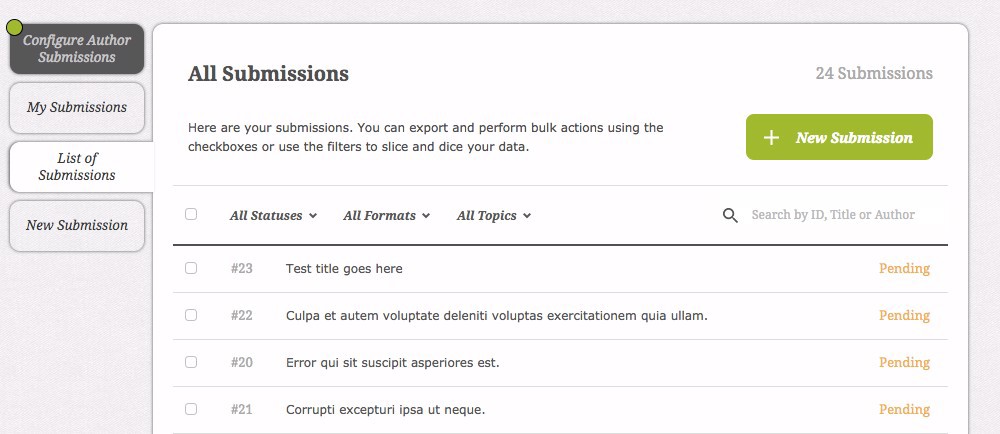
A table showing a list of submissions on Exordo.
Best for: Automated Reminders for Reviewers
Ex Ordo specializes in managing submission reviews with tools to track reviewer progress and send automated reminders.
Standout Features:
- Customizable submission forms and review processes.
- Automated notifications for reviewers who fall behind.
- Reviewer scoring and ranking for streamlined decision-making.
5. EasyChair
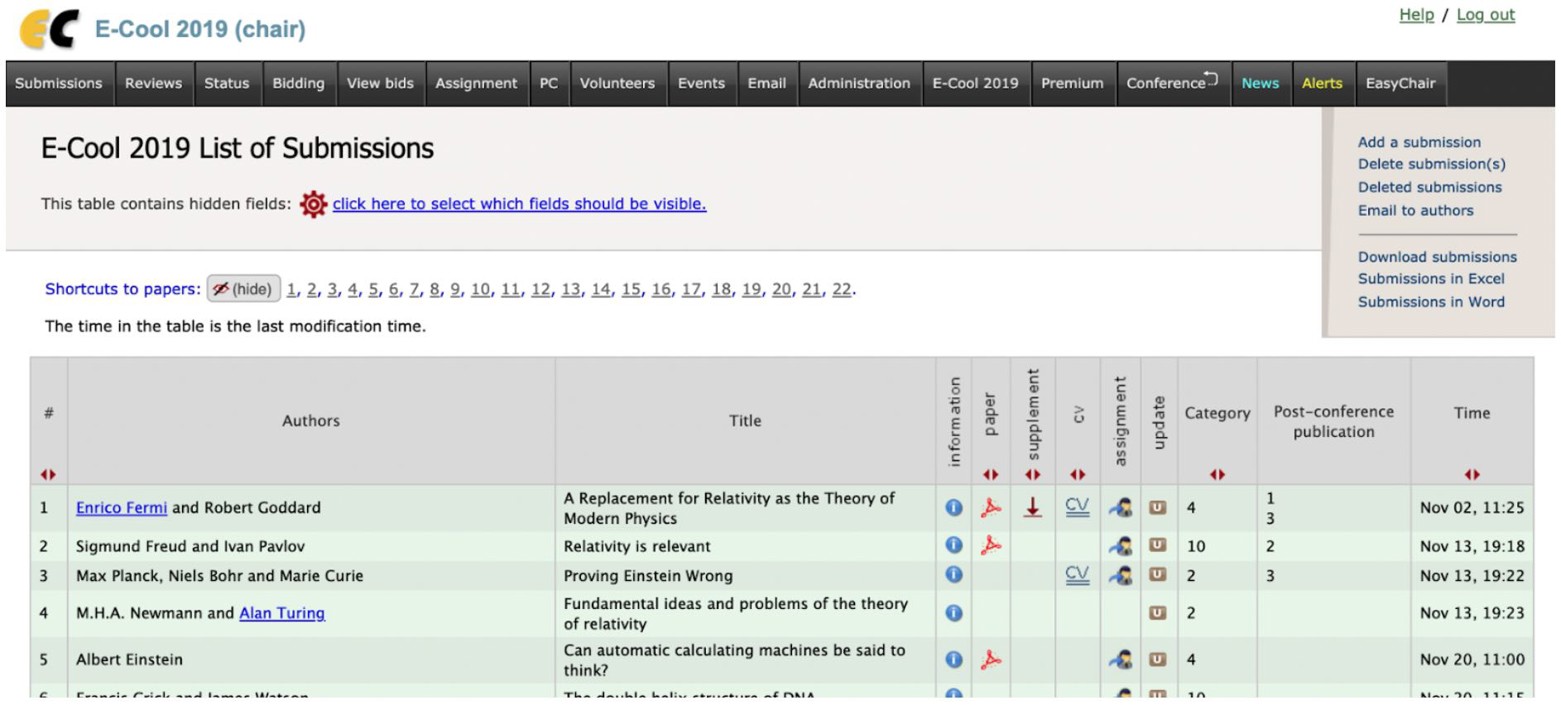
EasyChair is a submission management system that provides an interface to manage all aspects of your online submissions and review.
Best for: Managing Discussions During Peer Review
EasyChair offers a platform tailored to facilitate discussions between authors and reviewers, ensuring transparent and constructive feedback.
Standout Features:
- Smart CFP for flexible submission options.
- Tools for online discussions during the review process.
- Author rebuttal management to improve research submissions.
Pro Tip: Explore more about managing reviewer feedback and maintaining research integrity in our blog on Ethical Publishing Practices.
6. Dryfta
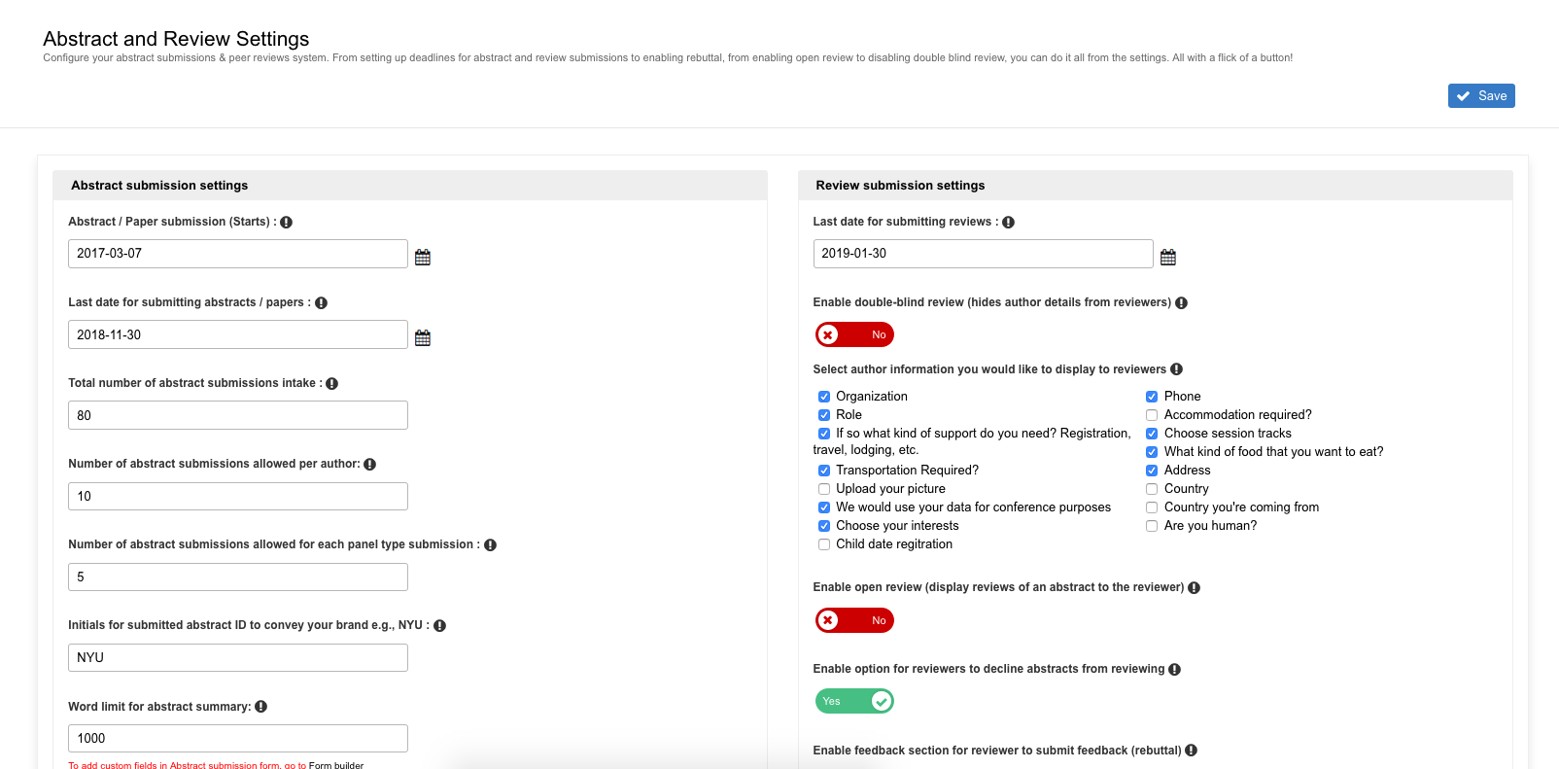
There are many submission and review options on Dryfta to adapt it to your usual workflow.
Best for: University-Specific Events
Dryfta caters specifically to university events with tools to manage submissions, reviews, and session scheduling.
Standout Features:
- Automated notifications for late submissions or reviews.
- Support for single-blind and double-blind review processes.
- Export data as CSV or PDF for post-event reporting.
7. Attendee Interactive (by Community Brands)
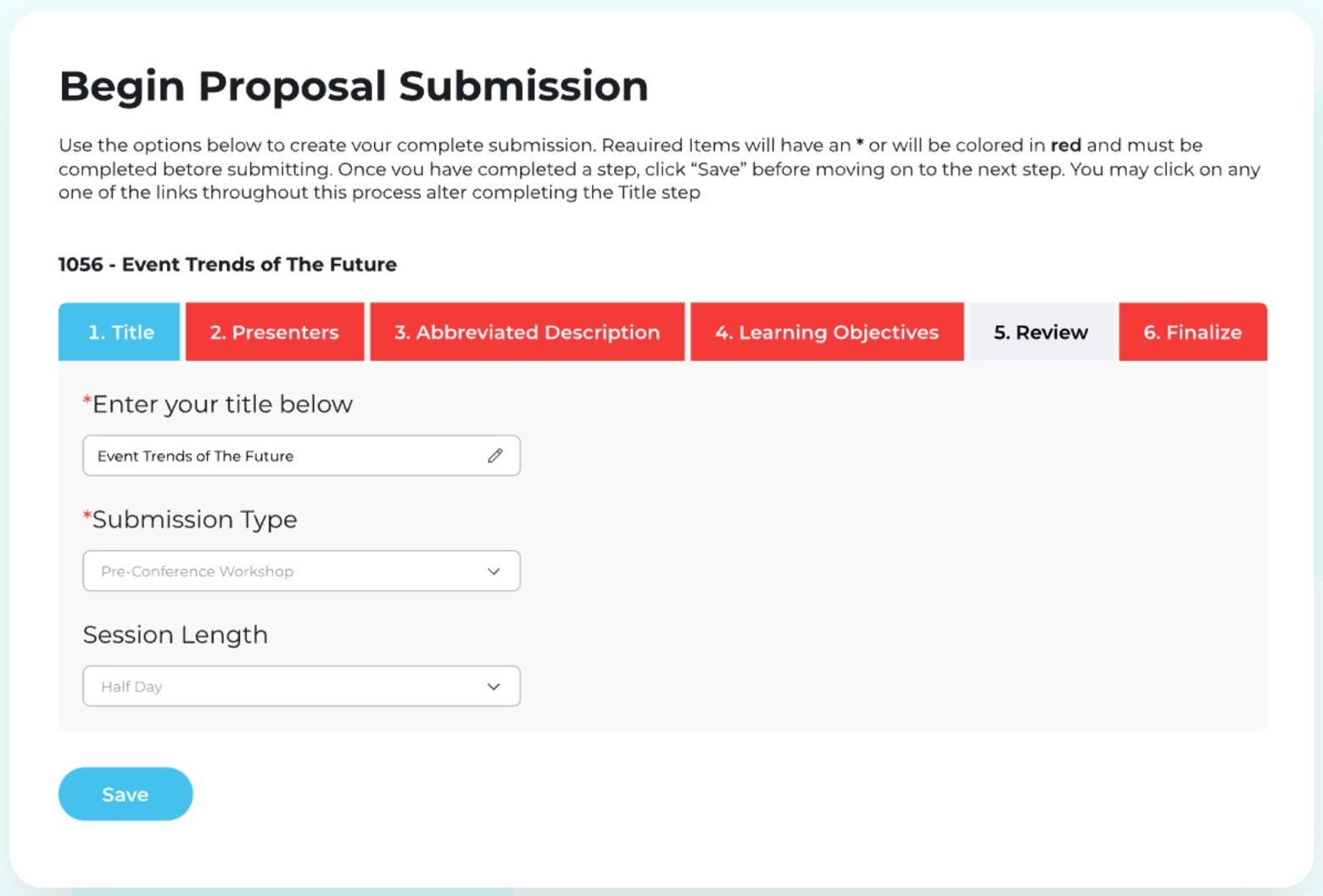
An example of a submission form on Attendee Interactive.
Best for: Collaborative Review Workflows
Attendee Interactive focuses on simplifying collaboration among reviewers with role-based assignments and comprehensive scoring tools.
Standout Features:
- Reviewer roles tailored to submission types.
- Automated compilation of reviewer scores and comments.
- Tools to calculate and track overall grading results.
8. Oxford Abstracts
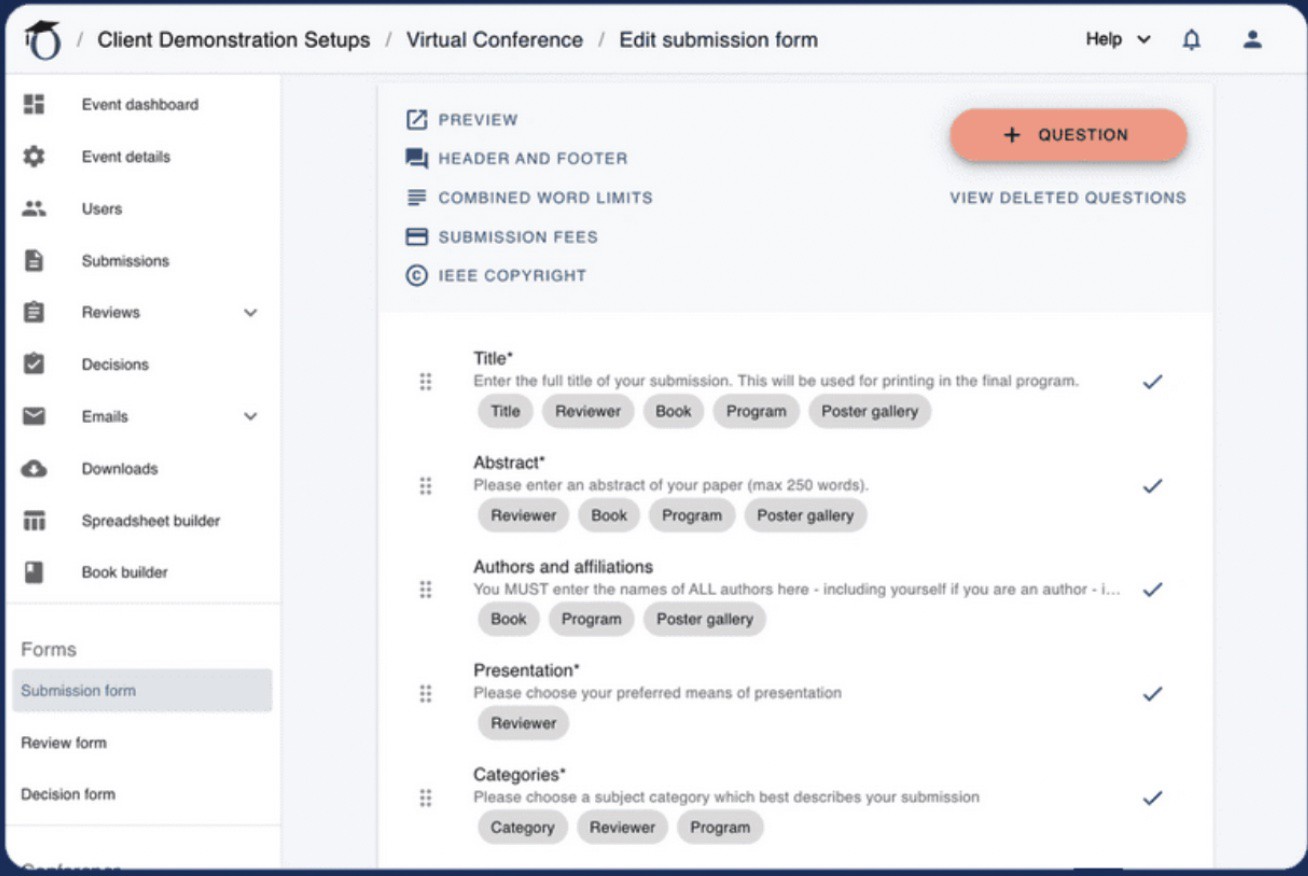
Oxford abstract allows you to customize the submission process.
Best for: Peer Review Simplicity
Oxford Abstracts offers simple peer review options to ensure clarity for reviewers while managing conflicts of interest and late reviews.
Standout Features:
- Intuitive peer review assignment based on specialisms.
- Late review tracking with automated follow-ups.
- Customizable decision-making processes for submission status.
Not sure which tool to choose for your abstracts?
In Conclusion
Choosing the right abstract management software depends on your specific needs:
- Fourwaves: Best for academic and scientific events, offering seamless integration of abstract evaluation, peer review, and event management.
- Cvent: Ideal for large, corporate-style events but less intuitive for academic users.
- OpenWater and Ex Ordo: Useful for recurring events or those requiring extensive automation.
- EasyChair and Oxford Abstracts: Great for managing detailed reviews and fostering transparency in the academic publishing process.
For academic and scientific events, Fourwaves stands out with its focus on simplifying the submission and review process while promoting ethical publishing practices and fostering scientific collaboration.
Ready to simplify your abstract management process? Book a demo with Fourwaves!


